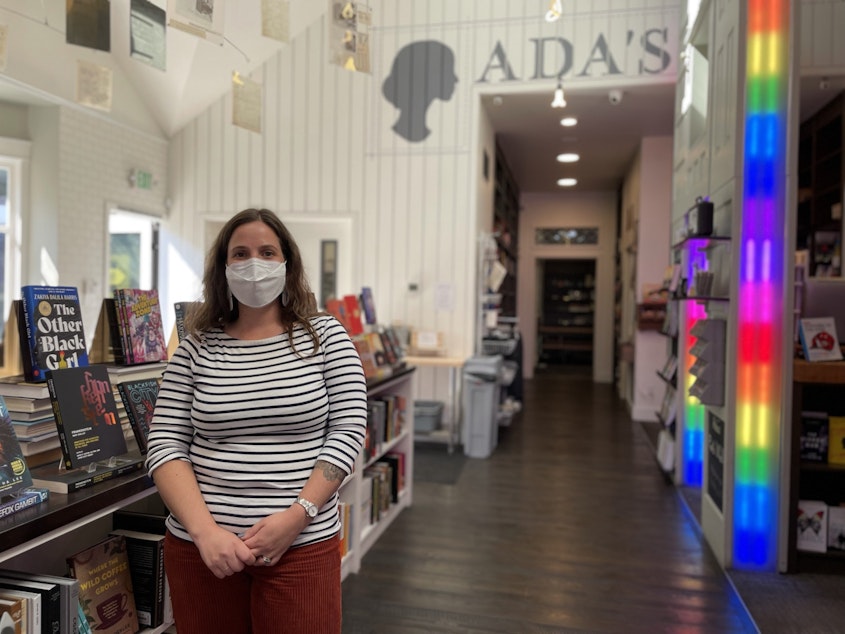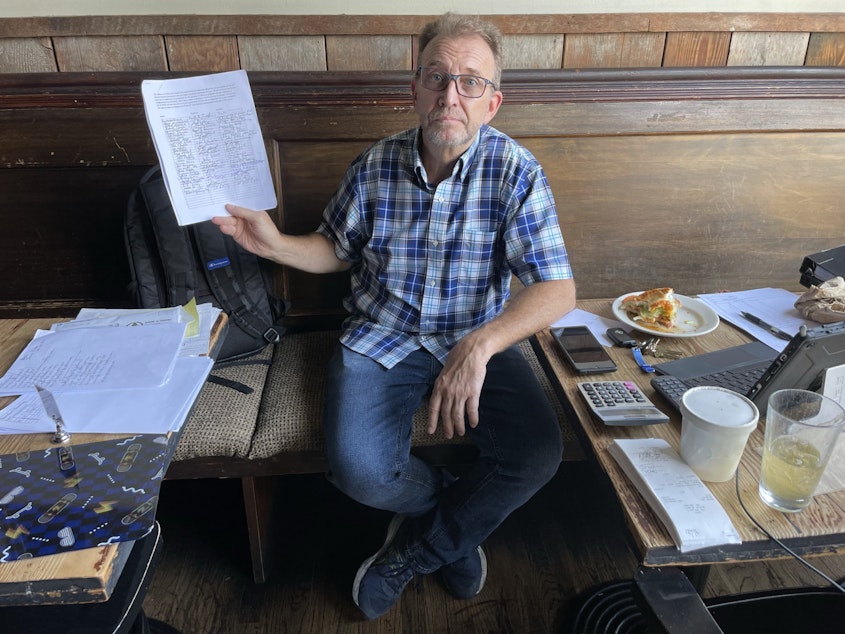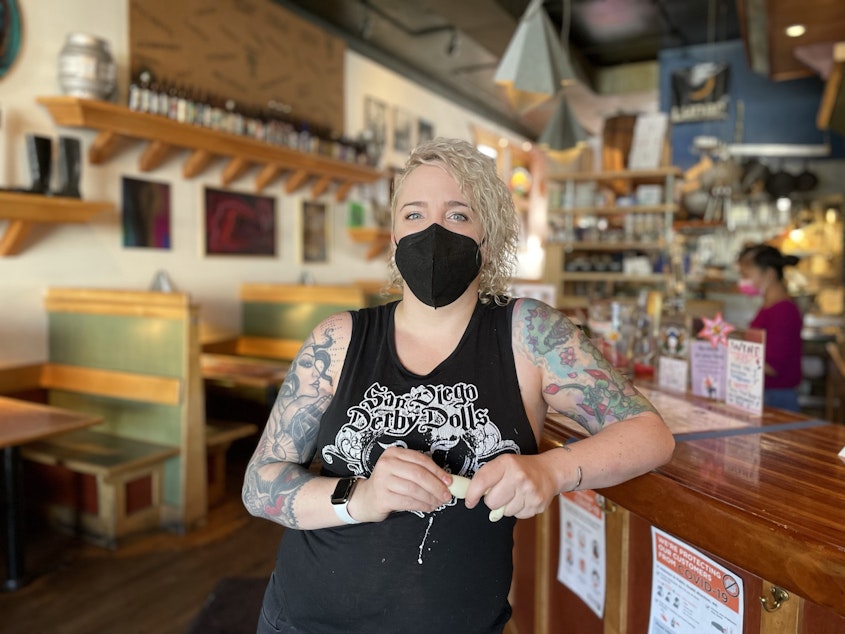This Seattle neighborhood wants to tax itself to post-pandemic prosperity

Property owners along 15th Avenue in Seattle's Capitol Hill neighborhood want to tax themselves.
They'd create a Business Improvement Area, or BIA, and use the money to pay for things like street cleaning, an outdoor festival, and graffiti removal. The idea has inspired strong reactions, for and against it.
Danielle Hulton is the owner of Ada’s Technical Books and Cafe. She says the 15th Avenue BIA would be much smaller than most other BIAs, with a budget of $116,000 the first year.
“We have a really modest budget. And so we’re really looking for some simple things that will make our neighborhood feel more welcoming to everybody.”
Street cleaning would increase to six days a week. Garbage would be collected more frequently, and graffiti would be scrubbed away.
She pointed to some modest projects funded by nearby Broadway's BIA.
"They were able to use funds to like fix their tree wells so people weren’t tripping on them, and to have more consistent lighting outside,” she said.
Seattle has 10 BIAs, created over about 30 years. This would be the first new one created during a pandemic to help a struggling business district.
One thing the money would pay for is a part time worker who'd pursue Covid relief grants, and help coordinate mask policies among businesses. Hulton says other BIAs secured funds to bring in more service providers, to connect people in crisis with resources, a job she said her bookstore staff are ill-equipped to perform.
Hulton says having a dedicated staff person is the key to unlocking grants, as she and other business owners are simply too busy trying to adapt to the pandemic to do that legwork themselves.
While the BIA has the support of many of 15th Avenue's property owners and bigger businesses, including Uncle Ike's, Kaiser Permanente, and Safeway, many small business owners contacted by KUOW Tuesday expressed surprise and shock at the cost and timing.

"We are still struggling," says Smith Bar owner Christopher Forczyk. "We're still in a pandemic. Right now, we’re in the middle of a labor crisis, trying to get people back to work. We’re in the middle of a confidence crisis because no one wants to come out to dinner. And now you’re going to charge me $1,500 a year and it’s only going to go up with inflation? That sounds pretty crazy to me."
Forczyk has been canvasing the neighborhood, gathering signatures in opposition to the BIA, in order to argue before Seattle's City Council that support is not as high as it appears.

Taelor Sloane is manager of the Hopvine Pub. She hadn't heard about the BIA until Forczyk stopped by with his petition last Friday.
"I think BIAs are awesome, generally," but in this case, she says "only the larger businesses have been involved ... and that's basically what's wrong with capitalism in general ... only the larger businesses get a say, and their experience is entirely different than our experience."
Danielle Hulton, the business owner and property owner organizing the BIA effort, acknowledges it's been challenging to get the word out during a pandemic.
"We've done everything we could to notify folks of [online] meetings, and it's clear that it only reaches certain people. So there's certain people that really feel plugged in and people that don't."
Hulton now carries around a pie chart showing where the funding would go. She welcomes dialogue with business owners who feel left out.
"I really do see it from both sides," she says. "But I think it'd be a really great tool for the neighborhood."
She says the BIA charter would be for seven years, and that after that, the neighborhood will face a decision on whether to renew.




